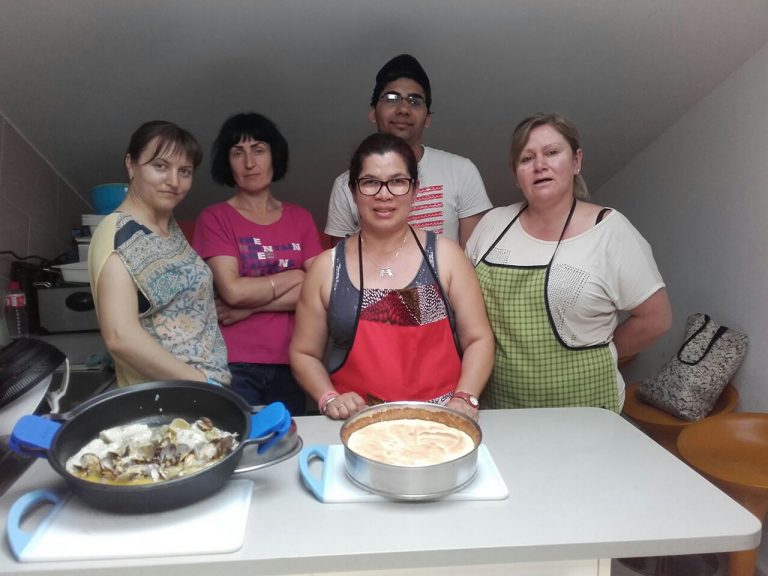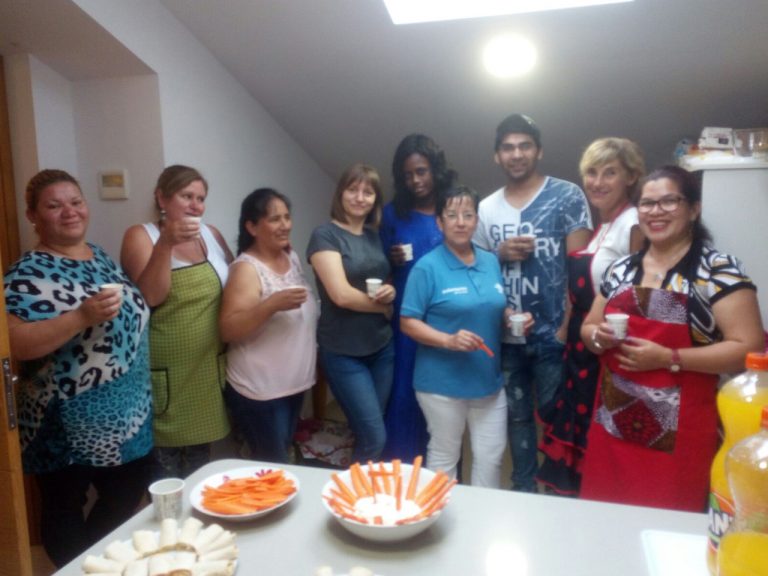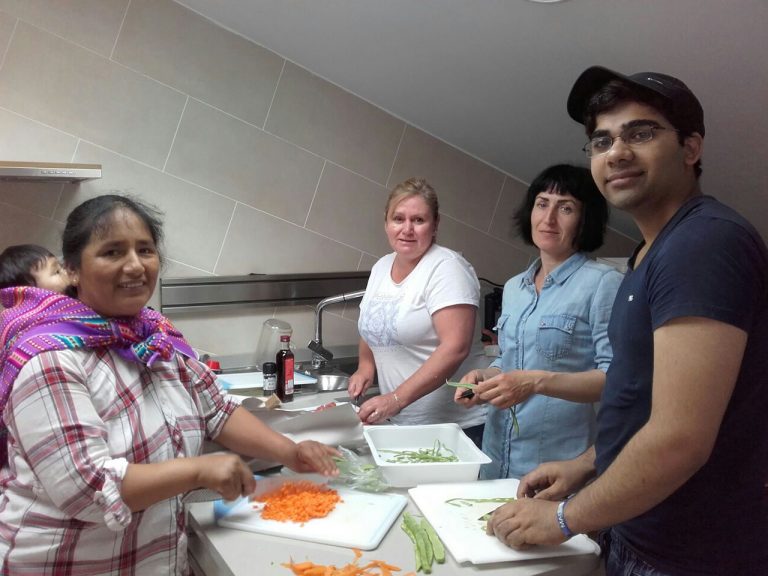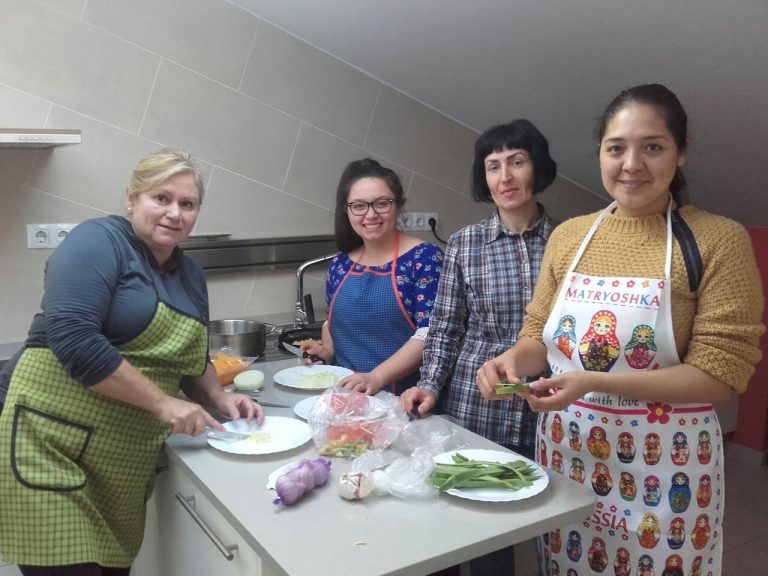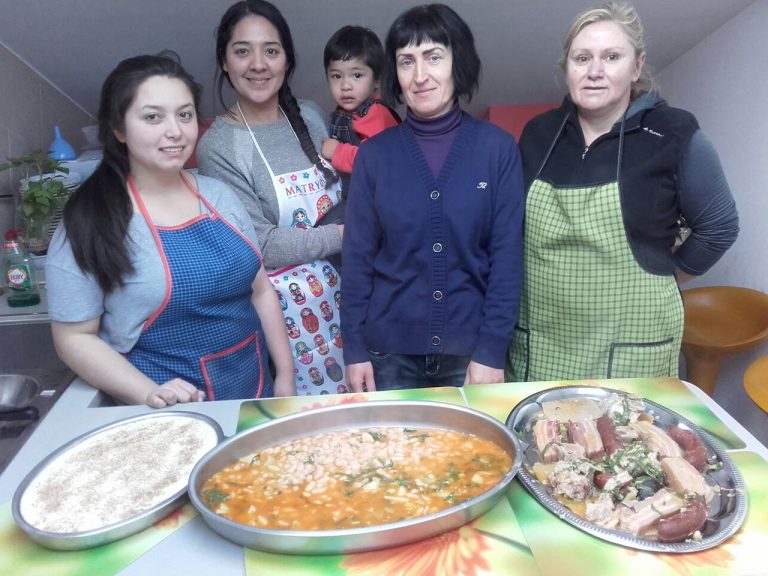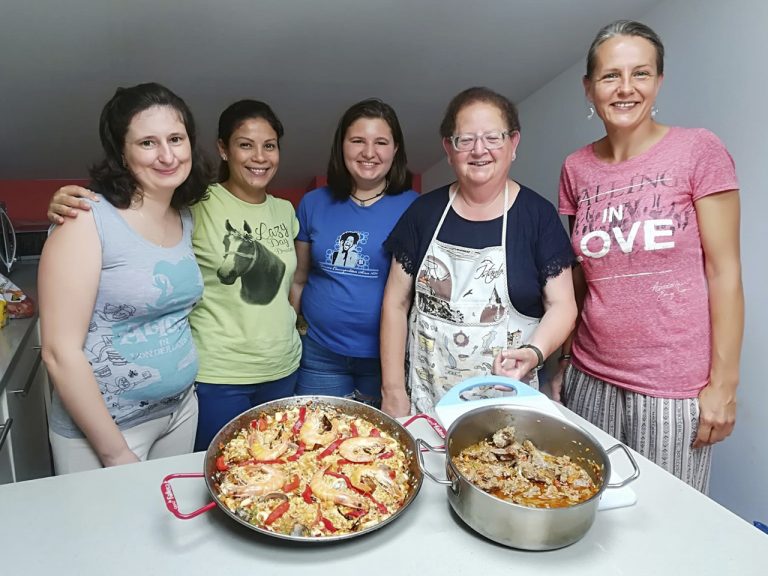Regular intercultural cooking of spanish recipies with seasonal products.
Description of the activity
The cooking workshop aims to teach migrants about the typical dishes of Cantabrian and Spanish cuisine as well as seasonal products and the sharing of recipes of different nationalities of the users. The origins of the participants are very varied: Moroccans, Senegalese, Paraguayan, Ukrainian, etc. This workshop is very important to know the Spanish gastronomic customs as it is an indispensable requirement to work in tourist or domestic sector and in this way to increase the employability of the participants. Thanks to the use of the kitchen as an instrument of socialisation in the workshop you can work on other skills such as communication, use of the Spanish language, teamwork, openness to new opportunities, self-confidence, commitment, problem solving, planning, motivation, reaching goals, coordination, etc. The workshop is given on a weekday, usually on Tuesday and lasts about 3 hours depending on how complicated the menu is and is taught for four weeks. It is done at least twice a year, which may be more depending on the resources and the interest of the beneficiaries. An average of 6 users participates in this activity. At the end of each course an activity is carried out that is very open to all. There is a closing party where the typical food of each beneficiary is shared, the experiences learned are exchanged and the friendships that arise during the course are encouraged This workshop is attended by a volunteer who is responsible for teaching it.

 English
English  Deutsch
Deutsch  Español
Español  Svenska
Svenska 
